
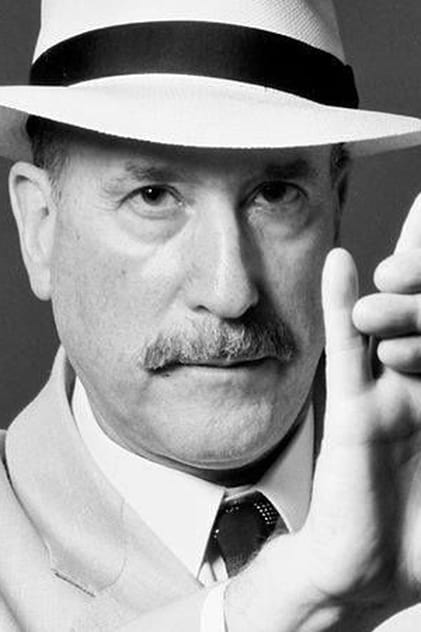
Néstor Almendros
Born: October 30, 1930
Died: March 4, 1992
in Barcelona, Barcelona, Catalonia, Spain
Died: March 4, 1992
in Barcelona, Barcelona, Catalonia, Spain
Néstor Almendros Cuyás (30 October 1930 – 4 March 1992) was a Spanish cinematographer. One of the most highly appraised contemporary cinematographers, "Almendros was an artist of deep integrity, who believed the most beautiful light was natural light...he will always be remembered as a cinematographer of absolute truth...a true master of light".
Néstor Almendros Cuyás was born in Barcelona, Spain, but at 18 moved to Cuba to join his exiled anti-Francisco Franco father. In Havana, he wrote film reviews. Then he went on to study in Rome at the Centro Sperimentale di Cinematografia. He directed six shorts in Cuba and two in New York City.
After the 1959 Cuban Revolution, he returned and made several documentaries for the Castro regime. But after two of his shorts (Gente en la playa and La tumba francesa) were banned, he moved to Paris. Starting in 1964, he became the favorite collaborator of French New Wave director Éric Rohmer. In the early seventies he also started working with François Truffaut, Barbet Schroeder and other directors.
Almendros began his Hollywood career with Days of Heaven (1978), written and directed by Terrence Malick, who admired Almendros' work on The Wild Child (1970). Almendros was impressed by Malick's knowledge of photography and his willingness to use little studio lighting. The film's cinematography was modeled after silent films, which often used natural light. In 1979, Almendros won the Academy Award for Best Cinematography for Days of Heaven.
Almendros received three further Academy Award nominations for his work on Kramer vs. Kramer (1979), The Blue Lagoon (1980) and Sophie's Choice (1982), making him the most nominated Spanish person in Academy history as of the 93rd Academy Awards in 2021.
Almendros was the cinematographer for the John Lennon documentary, Imagine: John Lennon (1988), directed by Andrew Solt.
In his later years, Almendros co-directed two documentaries about the human rights situation in Cuba: Mauvaise Conduite (1984) (Improper Conduct) about the persecution of gay people in Cuba; and Nadie escuchaba (Nobody Was Listening), about the alleged arrest, imprisonment and torture of former comrades of Fidel Castro. He also shot several prestigious advertisements for Giorgio Armani (directed by Martin Scorsese), Calvin Klein (directed by Richard Avedon) and Freixenet.
Human Rights Watch International has named an award after him by establishing the Nestor Almendros Award for Courage in Filmmaking and it is given every year at the Human Rights Watch International Film Festival.
In 1980, Almendros won the César Award for François Truffaut's The Last Metro.
In 1992, Néstor Almendros died of AIDS-related lymphoma in New York City at the age of 61.
Source: Article "Néstor Almendros" from Wikipedia in English, licensed under CC-BY-SA 3.0.
Néstor Almendros Cuyás was born in Barcelona, Spain, but at 18 moved to Cuba to join his exiled anti-Francisco Franco father. In Havana, he wrote film reviews. Then he went on to study in Rome at the Centro Sperimentale di Cinematografia. He directed six shorts in Cuba and two in New York City.
After the 1959 Cuban Revolution, he returned and made several documentaries for the Castro regime. But after two of his shorts (Gente en la playa and La tumba francesa) were banned, he moved to Paris. Starting in 1964, he became the favorite collaborator of French New Wave director Éric Rohmer. In the early seventies he also started working with François Truffaut, Barbet Schroeder and other directors.
Almendros began his Hollywood career with Days of Heaven (1978), written and directed by Terrence Malick, who admired Almendros' work on The Wild Child (1970). Almendros was impressed by Malick's knowledge of photography and his willingness to use little studio lighting. The film's cinematography was modeled after silent films, which often used natural light. In 1979, Almendros won the Academy Award for Best Cinematography for Days of Heaven.
Almendros received three further Academy Award nominations for his work on Kramer vs. Kramer (1979), The Blue Lagoon (1980) and Sophie's Choice (1982), making him the most nominated Spanish person in Academy history as of the 93rd Academy Awards in 2021.
Almendros was the cinematographer for the John Lennon documentary, Imagine: John Lennon (1988), directed by Andrew Solt.
In his later years, Almendros co-directed two documentaries about the human rights situation in Cuba: Mauvaise Conduite (1984) (Improper Conduct) about the persecution of gay people in Cuba; and Nadie escuchaba (Nobody Was Listening), about the alleged arrest, imprisonment and torture of former comrades of Fidel Castro. He also shot several prestigious advertisements for Giorgio Armani (directed by Martin Scorsese), Calvin Klein (directed by Richard Avedon) and Freixenet.
Human Rights Watch International has named an award after him by establishing the Nestor Almendros Award for Courage in Filmmaking and it is given every year at the Human Rights Watch International Film Festival.
In 1980, Almendros won the César Award for François Truffaut's The Last Metro.
In 1992, Néstor Almendros died of AIDS-related lymphoma in New York City at the age of 61.
Source: Article "Néstor Almendros" from Wikipedia in English, licensed under CC-BY-SA 3.0.
Movies for Néstor Almendros...
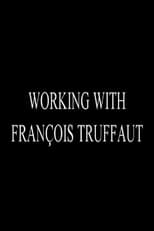
Title: Working with François Truffaut: Nestor Almendros, Director of Photography
Character: Self
Released: March 24, 2009
Type: Movie
An interview with cinematographer Nestor Almendros about his work with French film director François Truffaut. Footage taken from the 1986 German documentary Arbeiten mit François Truffaut

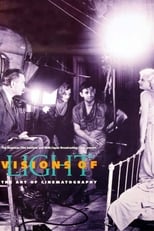
Title: Visions of Light
Character: Self
Released: September 17, 1992
Type: Movie
Cameramen and women discuss the craft and art of cinematography and of the "DP" (the director of photography), illustrating their points with clips from 100 films, from Birth of a Nation to Do the Right Thing. Themes: the DP tells people where to look; changes in movies (the arrival of sound, color, and wide screens) required creative responses from DPs; and, these artisans constantly invent new equipment and try new things, with wonderful results. The narration takes us through the identifiable studio styles of the 30s, the emergence of noir, the New York look, and the impact of Europeans. Citizen Kane, The Conformist, and Gordon Willis get special attention.

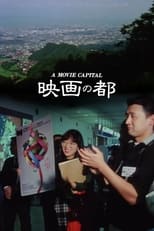
Title: A Movie Capital
Character: Self
Released: October 12, 1991
Type: Movie
This film is a record of the first Yamagata International Documentary Film Festival. It reflects the various ways the festival was given shape by nascent global changes embodied by Perestroika, the Tiananmen Square massacre, and many other contemporaneous events.

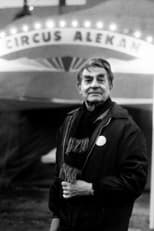
Title: Alekan, la lumière
Character: Self
Released: August 4, 1988
Type: Movie
An episode of the show "Océaniques " about the craft and lighting techniques of the legendary French cinematographer Henri Alekan

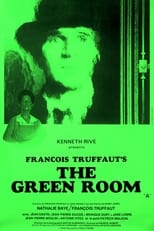
Title: The Green Room
Released: April 5, 1978
Type: Movie
A WWI veteran decides to build a memorial to all of the people who have mattered to him but are now dead.



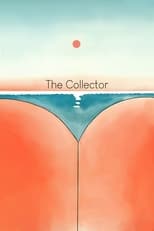
Title: La Collectionneuse
Released: March 2, 1967
Type: Movie
A bombastic, womanizing art dealer and his painter friend go to a seventeenth-century villa on the Riviera for a relaxing summer getaway. But their idyll is disturbed by the presence of the bohemian Haydée, accused of being a “collector” of men.
